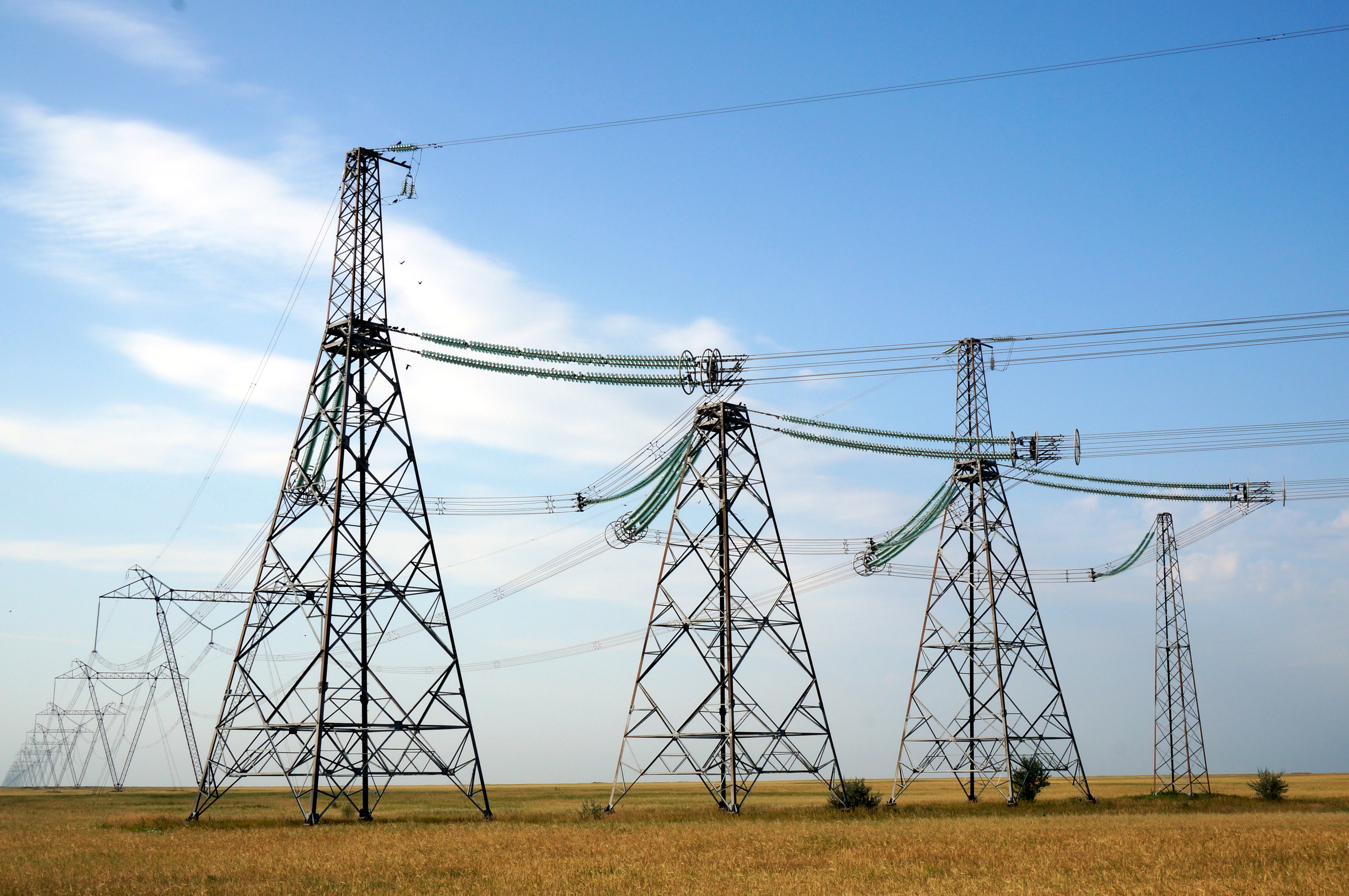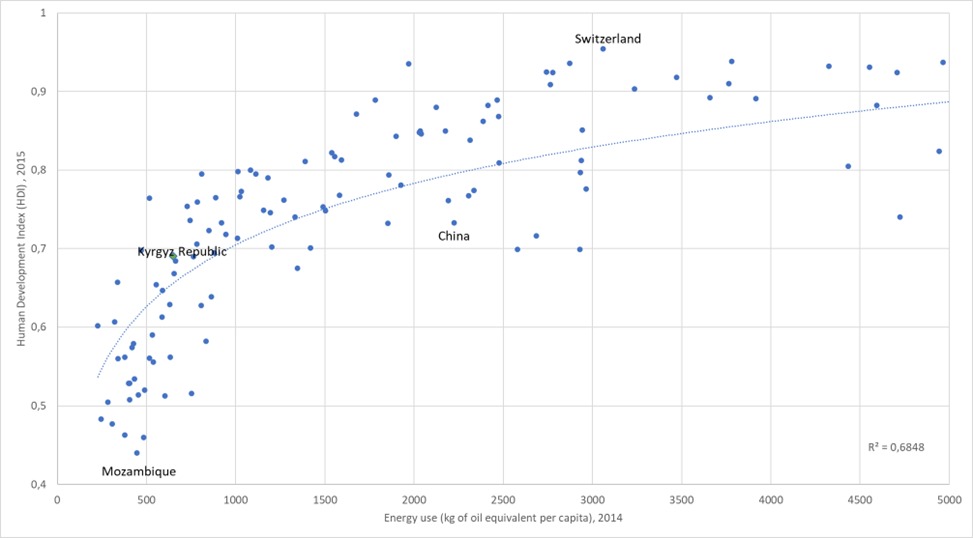Adequate quality and affordable energy supply is fundamental to economic growth, improved living standards and social justice. The provision of modern energy services improves the quality of life of the entire population, provides access to quality education and health services, expands business opportunities and, ultimately, creates jobs. The Kyrgyz Republic, having a high level of dependence on one energy resource - electricity from hydroelectric power plants (more than 90 percent of production capacity) and being a net importer of fossil fuels, faces various threats to energy security due to natural and climatic (low water and low level of inflow), geopolitical (dependence on one supplier of natural gas), infrastructure (high level of wear and tear of power equipment), undiversified sources of supply, non-market pricing, and other factors.
Kyrgyz Republic National Human Development Report: Bridging energy vulnerabilities for a sustainable and equitable energy future in the face of climate change
September 12, 2023

Adequate quality and affordable energy supply are fundamental to economic growth, improved living standards, and social justice. The provision of modern energy services improves the quality of life of the entire population, provides access to quality education and health services, expands business opportunities, and, ultimately, creates jobs.
The Kyrgyz Republic, having a high level of dependence on one energy resource - electricity from hydroelectric power plants (more than 90 percent of production capacity) and being a net importer of fossil fuels, faces various threats to energy security due to natural and climatic (low water and low level of inflow), geopolitical (dependence on one supplier of natural gas), infrastructure (high level of wear and tear of power equipment), undiversified sources of supply, non-market pricing, and other factors.
As a result, despite having a significant energy potential of hydropower, solar, and wind, the country is faced with an energy crisis. The energy sector cannot cover the ever-growing demand for electricity, which not only limits economic growth and development, but also has a significant negative impact on the health, education, and income levels of the population.
Thus, according to the latest reporting data of the National Statistical Committee for 2021, 70 percent of the population has stable access to electricity. 20.6 percent of the population in the country as a whole and 3.2 percent in rural areas use clean fuels and technologies. The practical use of renewable energy technologies is still in its infancy (does not exceed 1.5 percent in the generation mix).
Overcoming the energy crisis to meet the growing demand for meeting the basic needs of the population and the real sector of the economy requires a multifaceted approach. UNDP in the Kyrgyz Republic launched in 2023 a process to prepare a National Human Development Report (NHDR) to explore this energy vulnerability and human development nexus within the context of the country’s ongoing energy transition to a low-carbon emitter economy.
The early research for our NHDR uncovers a significant relationship across countries: high access to energy generally leads to higher human development levels. However, while energy access is a necessary ingredient, access alone does not automatically guarantee high human development. To comprehend how energy access can either help or hinder human development in the Kyrgyz Republic during its transition to large-scale transformation to clean energy, we need to examine the multidimensional challenges faced by different population groups. This includes addressing issues like health risks from air pollution, environmental damage, and economic marginalization that may amplify during this transition.

With this focus, the NHDR Scoping Study identifies 35.6 percent of the extremely poor and 28.5 percent of those living below the national poverty line do not have stable access to electricity, equating to 1.7 million people in the Kyrgyz Republic. The study suggests that the NHDR thematic analysis should focus on these 1.7 million people, who experience deprivations along a set of multidimensional axes: living below the official national poverty line, lacking stable access to electricity, and therefore using polluting fuels for cooking, lighting, and heating.
By focusing research, data collection, and analysis on groups living at the edge of the energy-human development nexus, the NHDR preparation process asks several critical questions: what characteristics does this group hold? What are the human costs of their lack of access to clean energy? What barriers do this group of 1.7 million people experience to access clean energy? Ultimately, the NHDR aims to unlock innovative policy measures to overcome these barriers.
The NHDR will take a deep dive into understanding the dynamics of energy vulnerability by assessing the specific challenges faced by households in Kyrgyzstan. This will include an analysis of energy poverty and its impact on household budgets, as well as an exploration of the factors that contribute to energy vulnerability, such as social inequality and economic instability. The Report will also unpack analysis of the impacts of climate change on energy vulnerability, including the increased risk of natural disasters and the impact on energy infrastructure. Additionally, we'll explore potential solutions to energy vulnerability, including increased access to renewable energy sources, improved energy efficiency, and targeted social protection programs. As a result, the Report aims to contribute a detailed assessment of the unique challenges faced by households in Kyrgyzstan and the potential avenues for addressing them.
The energy democracy movement recognizes that a future society based on distributed renewable energy generation differs fundamentally from current social structures based on conventional, centralized, fossil-fuel-burning energy generation. The report will explore the potential of renewable energy to be deployed in local, small-scale installations in a dispersed and distributed way, relying on perpetual and free resources, and being generally abundant and widely accessible.
The poorest within populations lacking access to clean energy are likely to suffer the most adverse environmental consequences as a result of the multidimensional inequalities they face. Energy use is the key intermediary between environmental impacts and socio-economic outcomes. The NHDR conceptual framework puts into focus the groups vulnerable throughout the multiple shifts in basic capabilities triggered by the shifts in the energy transition.
Despite countries' commitments under the Paris Agreement to reduce carbon emissions, fossil fuels still represent over 80 percent of global energy supply. The Kyrgyz Republic has committed to developing a Long Term-Low Emission Development Strategy until 2050, which will aim to reduce the consumption of fossil fuels and increase energy generation based on renewable sources, modernize the energy supply system, and promote energy efficiency measures. The energy sector generates about 60 percent of greenhouse gas emissions in the country, and mitigation potential in this sector will be realized by implementing these measures.
Energy vulnerabilities pose a significant challenge to the development of the Kyrgyz Republic. By better understanding the challenges faced by the vulnerable communities, the NHDR will provide valuable insights and recommendations for building a sustainable and just energy future, which could include the need to move beyond tariffs to improve energy access, the importance of innovation in the energy sector, strategies for raising public awareness and shifting opinions on energy, social protection policies for vulnerable households, and opportunities for regional cooperation, etc. By implementing these recommendations, the country can reduce its dependence on imported fossil fuels, improve energy security, and promote sustainable economic development.
The implementation of these recommendations will require the cooperation and coordination of various stakeholders, including the government, private sector, civil society, and international organizations. The NHDR provides an opportunity for all these stakeholders to work together and create a better future for the people of the Kyrgyz Republic.

 Locations
Locations
